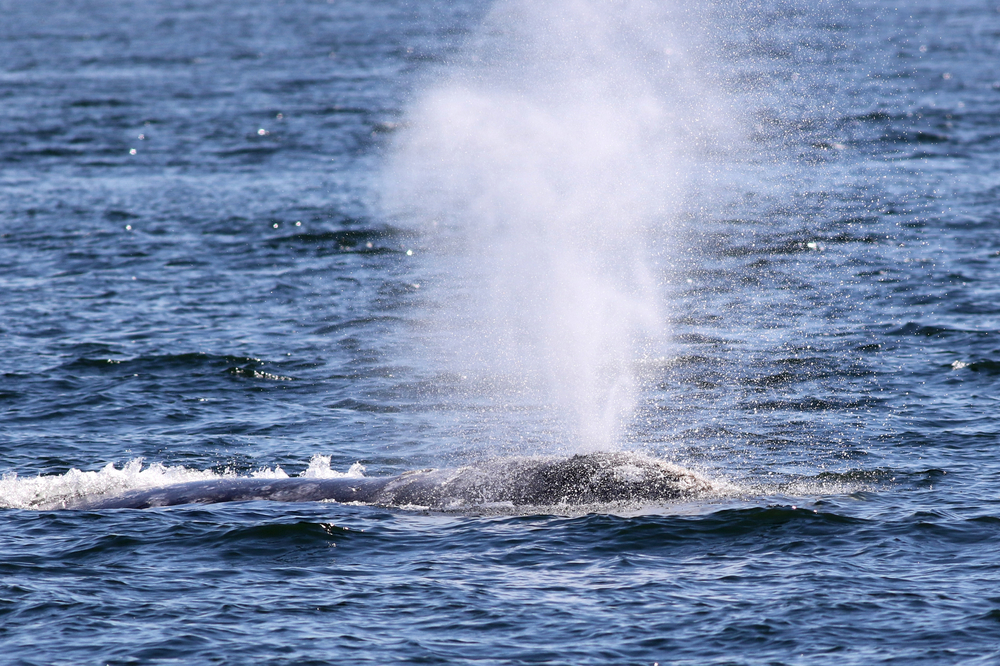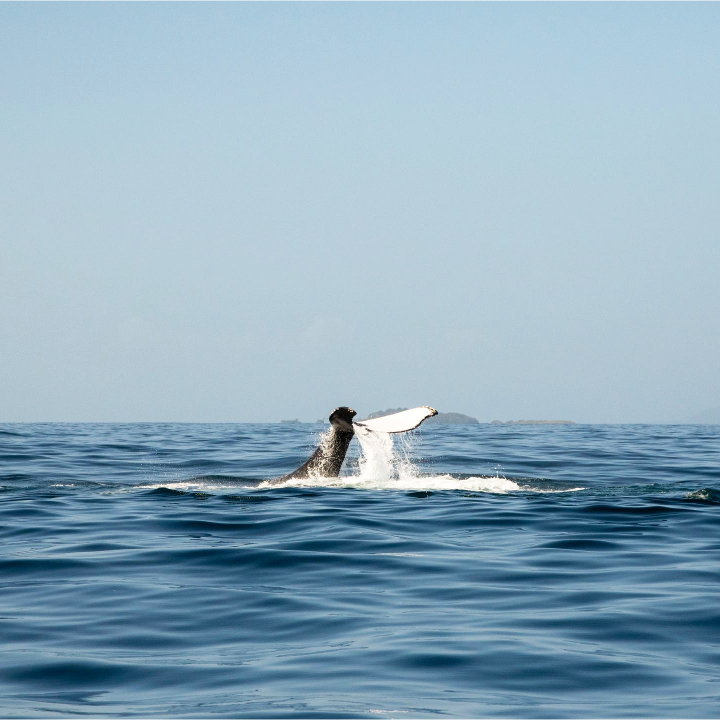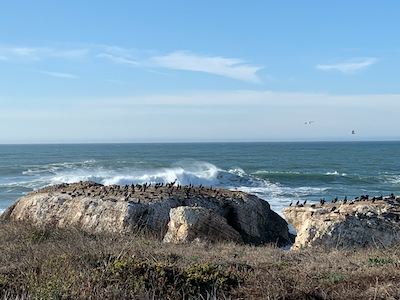
Sighting a whale is always a thrill, even from a great distance.
The first thing you usually see is the whale’s exhalation—the spout. A white, misty column appears suddenly on the horizon, then slowly dissipates as you focus in on it.
Is it a whale? You watch and wait.
Somewhere, underneath the distant surface, a large, magnificent creature is breathing, surfacing, rolling.
Then another spout appears nearby. Yes! If you’re lucky or have binoculars on hand, you might detect the sun’s reflection off the back of the whale as it rolls, or perhaps the wave of a fluke as it dives.

It’s like a glimpse into a hidden world—a breach of the borders between water and air, sea and sky. It’s always miraculous. You feel lucky, blessed by the encounter.
But finding the whales out at sea is difficult. Even if you visit the coast at the right general time of year, they are hard to see from afar. There’s an element of luck—are the whales even present? The conditions matter, too. A fairly calm ocean makes it easier to see those characteristic spouts.
The more intently you search for them, the tougher they are to detect—and the more disappointed you may be if they don’t show up.
The Benefits of Open Attention
I’ve been lucky enough to see gray whales migrating off our coast in California in recent months from a nearby state park. Over time, I’ve honed my method for finding them by practicing a kind of open attention.
Here’s my method, in case you’re ever looking for whales:
First, I let go of the idea of seeing whales and direct an open, accepting gaze on the sea, absorbing it all. Other things attract my attention—pelicans filing by in a line, diving cormorants, a sea otter.

While I am peacefully enjoying this prospect, in the corner of my vision I see something that doesn’t belong—a vertical white line. A spout. It feels like a gift for patient acceptance.
It strikes me that writers often spend our time on a similar quest, looking for ideas lurking in the depths that come to the surface to surprise and delight us.
Maybe the lessons of whale watching apply.
Spotting Inspiration
When looking for creative inspiration, start by putting yourself in the right situation—in this case, a mental situation rather than a physical one.
Just as calm water helps the whale watcher, a calm mind helps the writer. You’ll never notice the brilliant ideas if you are busy ruminating on what you’ve got to do tomorrow morning or what someone else said about you.
Direct your gaze to the general area you would like to think about. You’ll never spot a whale while scanning the mountains. Bring your mind’s attention to the general subject area you’d like to explore.
Then welcome a state of open attention. Rather than seeking the ideas, enjoy the contemplation. If you’re out walking, enjoy the walk. If you are freewriting or journaling, relish the exploration.
When you spot that puff of an idea, then you can focus in. Explore. Spend more time exploring and see what else comes up.
The big, brilliant ideas don’t show up every day on demand. But if you look often enough, you’re bound to find them.
Related Posts